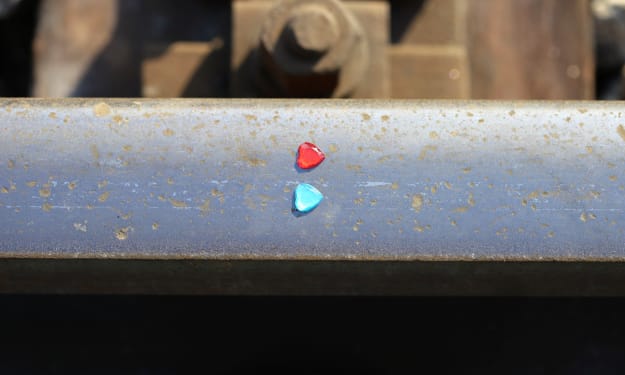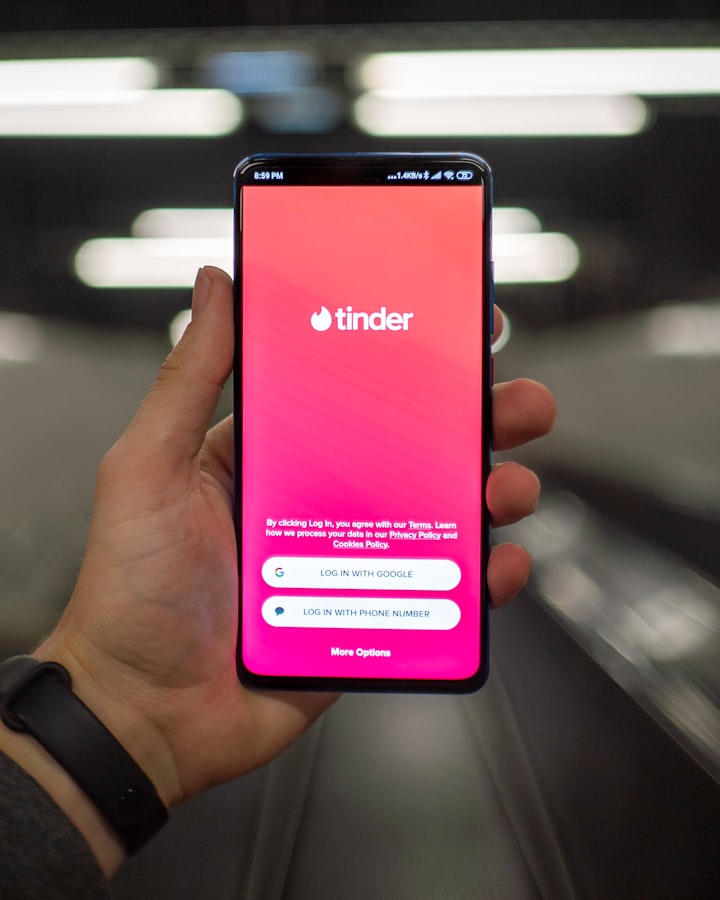Being Married to Someone on the Autism Spectrum
The trials and tribulations of being invisible

My husband was recently diagnosed as having Autism Spectrum Disorder (ASD). At first, I was immensely relieved by his diagnosis – we both were. For all the major miscommunications and resultant disagreements we’d had that led us to an assessment, we had started to think that either he had to be wired a bit differently or of late, we were both more irrational in each other’s company than Donald Trump is...in general. After our initial ‘aha!’ moment had passed, I began writing to various Autism support organizations thinking that surely, they’d be able to guide us in forging a way forward despite our utterly different approaches to life.
I was shocked to find that there is next to nothing out there for people in our situation – not where we live (Toronto). My research tells me this is the case in most places (though Australia and the U.K. are a slightly better bet). There are mainly resources for parents and teachers on how to support children with an autism diagnosis and for these I’m so grateful. However, even with the resources for children, I get a sense that the focus is more on getting them through the education system successfully and into adolescence, preparation for finding jobs and being independent and mostly employable. I wish there was a more holistic focus that included support around other aspects of what constitutes a rich and fulfilling life.
Support for adults living on the spectrum and support for their spouses and other family members is virtually non-existent. Sure, there are a few self-help books (all of which I’ve now read) as well as an exceedingly finite number of private psychologists in our city who specialize in couple’s counseling - but apart from this there really is nothing.
There is nothing for my husband who was diagnosed at the age of forty and has lived wholly unsupported from childhood and throughout his adulthood. His parents are in fact in vehement denial of his recent diagnosis because ‘these things didn’t exist’ in their day. It makes me immensely sad and frustrated. I can only imagine how disorienting and difficult it must have been for my husband growing up. What is apparent is that over his lifetime, he has become entrenched in the very coping mechanisms that were used to ‘discipline’ him as a child – those of either utter indifference or outright anger. These have also led him to suffer with various anxiety disorders and from what I can now tell, there is a brokenness within him that no one should have to feel. Let me be clear – my husband is not broken because he has autism. Not at all. He’s been broken because the people in his life who should have been there advocating for him and supporting him (like all parents should do for all children) did anything but those things.
So anyway, here we are. Only in so many ways, it’s as if we’re not. Because when I reach out, trying to find something, anything, that even gives a shred of real-life acknowledgment that relationships like ours exist and what they mean for the people in them, it feels like I’m shouting but no one can hear me. I feel we’re invisible due to a total lack of dialogue on the topic. For example, healthcare and other professionals in the public sector are only peripherally aware of ASD in adults and especially those like my husband who are seen as 'high-functioning'. This is surprising because being diagnosed with ASD isn’t by any means rare. Statistics where we live estimate that 1 out of 68 children are currently diagnosed and that as diagnostic methods have progressed, the prevalence of ASD has increased over 100% in the last 10 years. Autism is noted as the fastest growing and most commonly diagnosed neurological disorder in Canada. Yet, as a society, we have yet to catch up to the actual impact that ASD has throughout different ages and stages of life and on navigating relationships for all concerned.
And being in a relationship affected by ASD is so very hard – for both of us. I can say with certainty how and why it is for me, as an expressive, neuro-typical woman. My perspective is mine and mine alone because it’s driven by personal experience but perhaps those who have walked in my shoes or continue to do so will be able to relate.
When we met, I knew he was different. I fell in love with a man who can be best described as a walking contradiction from moment to moment:
- Naïve and yet highly self-conscious.
- Aloof and yet brutally honest.
- Anxious and yet oblivious.
- Intelligent and yet very little concept about how to approach most real life situations.
It was relatively easy to ignore the hard parts and just celebrate the stark differences while we were dating. It didn’t seem too bad that he had a very fixed bedtime and mealtimes were literally set in stone. On their own, these were just individual quirks. I ignored the hardness of it when we moved in together and I had to move into his place, box by box by box over the course of a whole month so that the change wouldn’t overwhelm him.
Though very distraught, I even got past the fact that I’d have to find my beloved cat of six years a new home and never see him ever again – because a cat wasn’t part of his plan. It meant unwanted change and change, not being easy for someone with ASD etc. I thought it was okay because we were in love. I thought I was okay making these sacrifices.
When we got married, despite wanting my family there with all my heart, I told myself it was kind of cool eloping to sunny Florida to get married, just the two of us because social situations were too much for him – too anxiety provoking. I reasoned, it’s his wedding day as much as mine and if it totally sucks for him – what’s the point? I convinced myself that the big day is and should be about the bride and groom. The rest of it is just white noise.
I felt very protective towards someone for whom everything I considered obvious and routine was too big a deal. When my friends and family questioned that our partnership seemed a bit lopsided, I said with unwavering faith that everyone deserved love and just because someone was a little different (at the time we didn’t have an official diagnosis), it didn’t mean they needed any less love. I cocooned us in a bubble in which we lived quite happily together. It was hard but not painful – until I came to a period in my life where I was vulnerable. Until I really needed unconditional love and partnership too. Until our new baby simply needed two parents.
Throughout our relationship, I prided myself on being strong for both of us. Frankly my own desire for us to have a family, his desire and inability to actually conceptualize what a family entailed before having one, and my taking at face value when he said he’d be able to cope with it all, did not allow me to see past the fragile bubble I’d so willingly conceived for us.
No, I never realized that a baby wouldn’t be an added feature in my world but the entirety of it. I never knew that the love and the protective instinct I’d feel for my son would completely dwarf anything I could feel for anyone else. I never realized that my husband’s inability to be able to connect with people (other than me) would also translate as him being emotionally disconnected from our baby. I didn’t know that I’d not only be alone as a parent while he failed to cope but that I’d also be heavily criticized by him for being an attached and loving mother to my own baby – my world.
I couldn’t see it coming that, for all the nurturing I gave him throughout the years, all he could give me as a new mother slowly finding her feet would be condescension, anger, and in better moments, indifference – because he wouldn’t know how to give anything else. That when I needed a hug and help with our newborn, he would need down time – alone, watching television. I never fully appreciated that projects and dollar amounts (all tangibles) mattered to him so much more than people and feelings. But then again, how could I have known what I do today when I never even knew that relationships like ours even existed until I was in one?
I can definitely say that I’ve grown a lot so far in this journey, which is so different from anything I’ve ever experienced or been part of before. Perhaps due to my husband’s challenges, I’ve found myself even more dedicated to cherishing and nurturing our beautiful son the way that under different circumstances, two connected parents would. After all, I’ve been doing exactly that since day one and it has given me a strength I didn’t know I had.
I intend to keep doing my part to make things work in this marriage because once upon a time, that feels so long ago today, we had something real. I also strive to keep raising awareness about relationships like ours in the hope that one day there will be better support for adults living with ASD and for their spouses. Wouldn’t it be awesome if the uniqueness of such unions could be more widely understood and acknowledged as well as their extreme complexity? I think it would. For now, however, there are times when being married to someone with ASD makes me feel invisible both in wider society and at home – and that part’s very hard.






Comments
There are no comments for this story
Be the first to respond and start the conversation.